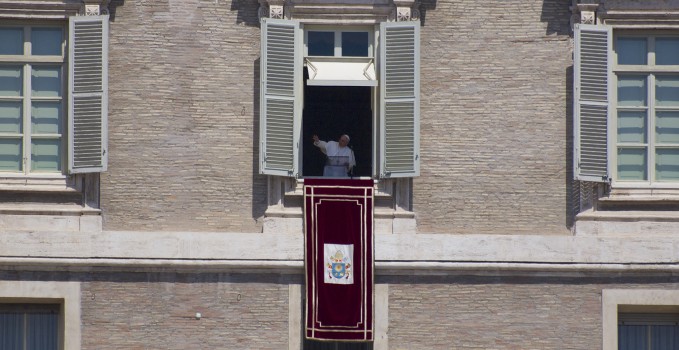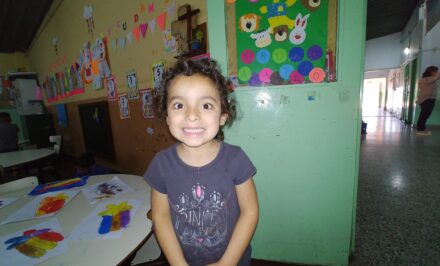FRANCIS IN ROME •
At noon in Rome, Pope Francis appeared in the window of the studio in the Apostolic Palace – as he does every Sunday – to pray the Angelus, which he dedicated to the gospel reading about the Wedding Feast of Cana, taken from the liturgy of the day
May the Mother of Jesus help us to “rediscover with faith the beauty and richness” of the Eucharist and the other sacraments that “render present God’s faithful love for us,” Pope Francis prayed at the start of the Sunday Angelus.
Full text of the Pope’s words before praying the Angelus:
Dear Brothers and Sisters, Good morning!
This Sunday’s Gospel presents the prodigious event that occurred at Cana, a village in Galilee, during a wedding feast also attended by Mary and Jesus, with his first disciples (cf. Jn 2:1-11). The Mother points out to her Son that the wine has run out, and, after responding that his hour had not yet come, Jesus nevertheless accepts her request and gives to the bride and groom the best wine of the entire feast. The Evangelist underlines that this was the first of the signs Jesus performed; it “manifested his glory; and his disciples believed in him” (v. 11).
Miracles, thus, are extraordinary signs that accompany the Good News and have the purpose of causing or strengthening faith in Jesus. In the miracle performed at Cana, we are able to glimpse an act of benevolence on the part of Jesus toward the bride and groom, a sign of God’s blessing on the marriage. The love between a man and a woman is therefore a good path through which to live the Gospel, that is, to set out with joy on the path of holiness.
Yet the miracle at Cana does not pertain only to spouses. Every human person is called to encounter the Lord in his or her life. Christian faith is a gift which we receive in Baptism and which allows us to encounter God. Faith intersects times of joy and pain, of light and darkness, as in every authentic experience of love. The narrative of the wedding at Cana invites us to rediscover that Jesus does not present himself to us as a judge ready to condemn our faults, nor as a commander who imposes upon us to blindly follow his orders; he is manifest as Saviour of mankind, as brother, as our elder brother, Son of the Father: he presents himself as he who responds to the expectations and promises of joy that dwell in the heart of each one of us.
Thus we can ask ourselves: do I really know the Lord like this? Do I feel him close to me, to my life? Am I responding to him on the wavelength of that spousal love which he manifests each day to everyone, to every human being? It is about realizing that Jesus looks for us and invites us to make room in the inner reaches of our heart. In this walk of faith with him we are not left alone: we have received the gift of the Blood of Christ. The large stone jars that Jesus had filled with water in order to transform it into wine (v. 7) are a sign of the passage from the old to the new covenant: in place of the water used for the rites of purification, we have received the Blood of Jesus, poured out in a sacramental way in the Eucharist and in the bloodstained way of the Passion and of the Cross. The Sacraments, which originate from the Pascal Mystery, instill in us supernatural strength and enable us to experience the infinite mercy of God.
May the Virgin Mary, model of meditation of the words and acts of the Lord, help us to rediscover with faith the beauty and richness of the Eucharist and of the other Sacraments, which render present God’s faithful love for us. In this way we fall ever more in love with the Lord Jesus, our Bridegroom, and we go to meet him with our lamps alight with our joyous faith, thus becoming his witnesses in the world.
(English translation from www.vatican.va)














